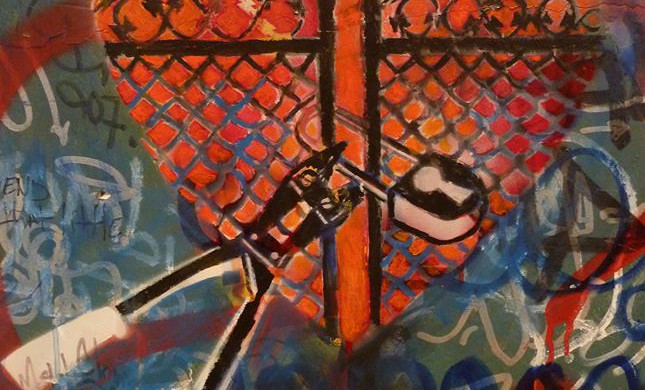Author: Minor Compositions
-

There is no authority but yourself… and there is no self
There is no authority but yourself… and there is no self 19 August – 7PM – The Substation, Singapore Punk is often narrated as a kind of year zero, a total break with the past. But this is far from the case. Nowhere is that clearer through the anarcho-punk punk Crass, who taking the phrase…
-

The Way Out
The Way Out. Invisible Insurrections and Radical Imaginaries in the UK Underground 1961-1991 Kasper Opstrup A counterculture history of art and experimental politics that turns the world inside out The Way Out examines the radical political and hedonist imaginaries of the experimental fringes of the UK Underground from 1961 to 1991 By examining the relations…
-

The Final Countdown
The Final Countdown: Europe, Refugees and the Left Edited by Jela Krečič. There is a commonly accepted notion that we live in a time of serious crisis that moves between the two extremes of fundamentalist terrorism and right wing populism. The latter draws its power from the supposed threat of immigrants: it proposes to resolve…
-

#WorldsUpsideDown Exhibition
#WorldsUpsideDown 11 March – 2 April @ Firstsite, Colchester Riots. Revolts. Revolution. All flashing moments which throw the world – and our relationship with it – in question. From the uprising against the Russian Czar one hundred years ago to the Arab spring and protests against war, austerity and the continuing failure of politics as…
-

Gee Vaucher. Introspective Catalogue
Gee Vaucher. Introspective Edited by Stevphen Shukaitis Gee Vaucher is an internationally renowned political artist, known for her ‘radical creativity’, montages, and iconic record sleeve artwork for the famous anarchist-pacifist band Crass. Vaucher has always seen her work as a tool for social change, using surrealist styles and methods, and a DIY aesthetic to create…
-

Gee Vaucher – Introspective Exhibition
Gee Vaucher – Introspective Exhibition 12 November, 2016 – 19 February, 2017 Firstsite, Colchester, UK Gee Vaucher (1945) is an internationally renowned political artist living outside Epping, Essex. She is best known for her radical creativity, montages and iconic artwork for the infamous anarcho-pacifist band Crass. Employing an eclectic range of styles and techniques, coupled with…
-

The Aesthetic of Our Anger
The Aesthetic of Our Anger. Anarcho-Punk, Politics and Music Edited by Mike Dines & Matthew Worley Punk is one of the most fiercely debated post-war subcultures. Despite the attention surrounding the movement’s origins, analyses of punk have been drawn predominantly from a now well-trodden historical narrative. This simplification of punk’s histories erases its breadth and…
-
Art & Anarchism Event @ the London Anarchist Bookfair
Art & Anarchism Event @ the 2016 London Anarchist Bookfair 2016 London Anarchist Bookfair – Saturday 29th October from 10am to 7pm Ad busting, cultural subversion, avant garde experimentation, DIY ethics and a wealth of movement propaganda – posters, stickers, zines – all point to the central role that visual and performance art occupies in…
-
Adventures in Sound & Music with John Gruntfest
Adventures in Sound & Music Broadcast on Resonance FM with John Gruntfest & Stevphen Shukaitis Minor Compositions editor Stevphen Shukaitis is hosting a radio show on the work of free jazz saxophonist and poet John Gruntfest. The show will broadcast Thursday April 7 from 9-10:30PM on Adventures in Sound & Music produced by music magazine The Wire,…
-

Occupation Culture
Occupation Culture: Art & Squatting in the City from Below Alan W. Moore Occupation Culture is the story of a journey through the world of recent political squatting in Europe, told by a veteran of the 1970s and ‘80s New York punk art scene. It is also a kind of scholar adventure story. Alan W.…







